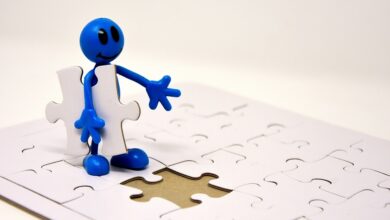Puzzle Games for Developing Social Skills and Interpersonal Communication

In today’s digital age, where screens and technology dominate our lives, finding ways to develop social skills and interpersonal communication has become increasingly important. One effective and enjoyable way to enhance these skills is through puzzle games. These games not only challenge our cognitive abilities but also provide a platform for collaboration, teamwork, and effective communication.
Puzzle games require players to think critically, solve problems, and work together to find solutions. To successfully complete a puzzle, individuals must communicate ideas, share strategies, and actively listen to others. This fosters the development of essential social skills, such as effective communication, teamwork, and cooperation.
One way puzzle games encourage social interaction is through cooperative gameplay. Many puzzles are designed for two or more players to work together to reach a common goal. This cooperative play cultivates teamwork skills, as players must listen to one another, exchange ideas, and compromise on different strategies.
Additionally, puzzle games often provide an opportunity for players to discuss and analyze the game’s challenges. This discussion allows players to articulate their ideas, listen to different perspectives, and develop empathy towards others’ viewpoints. As players engage in conversations about strategies and problem-solving, they enhance their interpersonal communication skills, learning to articulate their thoughts clearly and respectfully.
Moreover, puzzle games often include elements of competition, which can further enhance social skills. Competition in the context of puzzle games encourages healthy rivalry, encourages players to understand the strengths and weaknesses of their teammates, and pushes individuals to communicate their strategies effectively. This healthy competition motivates players to work collaboratively, finding innovative ways to outwit their opponents.
The benefits of puzzle games for social skills and interpersonal communication extend beyond the game itself. As players collaborate and communicate while solving puzzles, they develop skills that can be transferred to real-life situations. These skills are crucial in various aspects of life, from school projects to work environments. Puzzle games provide a safe and enjoyable space to practice and refine skills such as active listening, effective communication, and problem-solving, which can be applied to daily interactions.
It is crucial to incorporate puzzle games into educational settings as well. Teachers can integrate these games into their classrooms to encourage teamwork, communication, and critical thinking among students. By incorporating puzzle games into the curriculum, educators can create a dynamic learning environment that prepares students for real-world challenges and cultivates important social skills.
In conclusion, puzzle games offer a valuable platform for individuals to develop social skills and enhance their interpersonal communication abilities. Through cooperative play, strategic discussions, and healthy competition, these games encourage teamwork, effective communication, and problem-solving. Moreover, the skills developed through puzzle games have real-life applications and can benefit individuals in various settings. So, the next time you’re looking for a fun and educational activity to enhance social skills, try engaging in a puzzle game – and watch your communication abilities grow.





